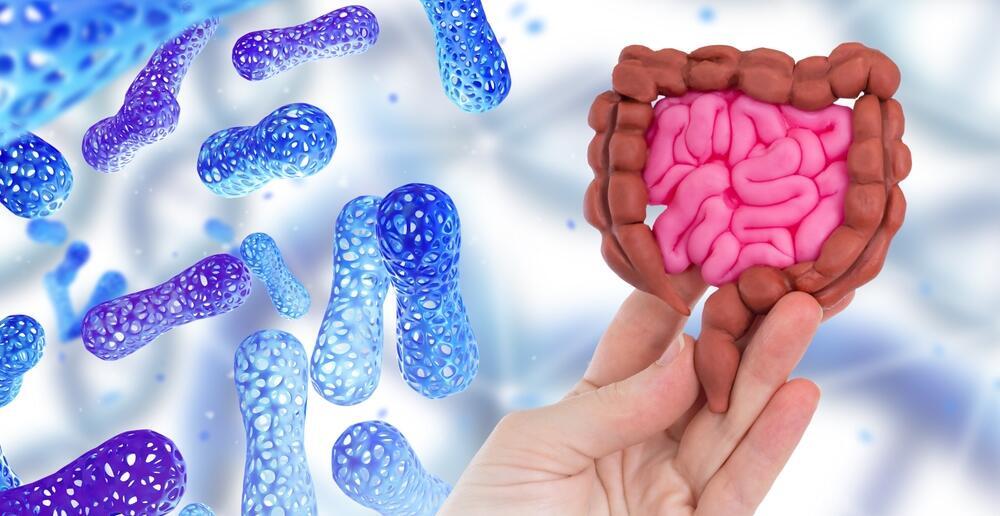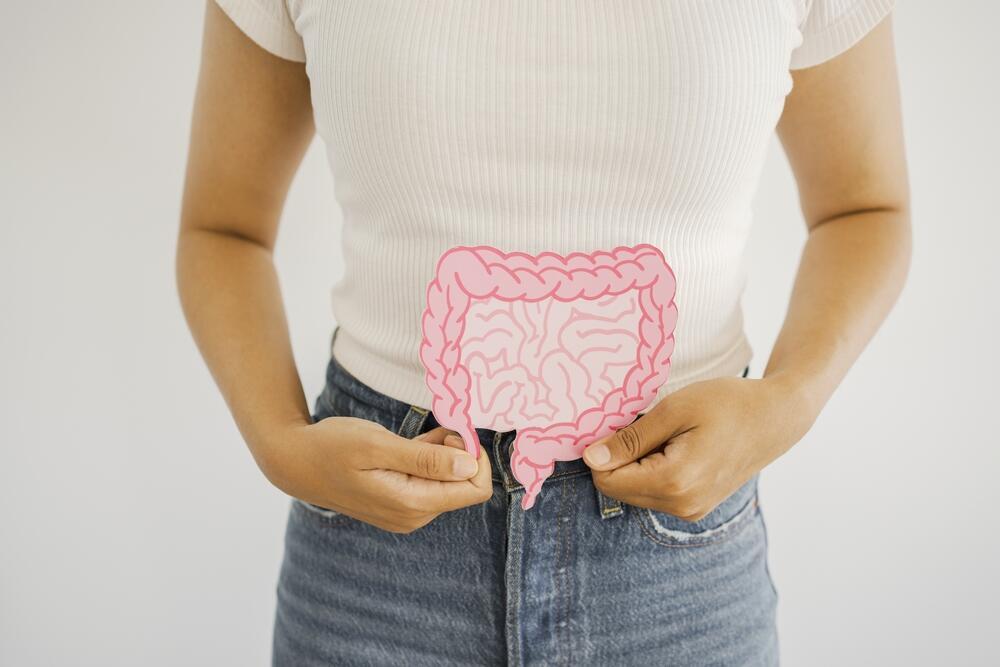Getting your Trinity Audio player ready...
Researchers from Ariel University in the West Bank have discovered a link between the composition of gut bacteria, inflammation markers, and their influence on social behavior, according to a new study published in the BMC Medicine journal further underscores the substantial impact of the bacterial population residing within us on our mental well-being
In recent years, the study of the microbiome has gained significant traction within the scientific community. Evidence accumulated over the past decade highlights the many health benefits of gut bacteria, which impact various bodily systems.
It is well established that the microbiome influences the central nervous system and brain functions. Increasingly, research is showing a connection between the microbiome and our daily social behaviors, and more importantly, its link to behavioral disorders such as depression and anxiety.
There is promising news: Researchers demonstrated that administering hyaluronic acid orally, which helped improve gut inflammation markers, significantly enhanced social behavior and reduced depression-like traits in mice characterized by antisocial behavior and poor stress management. However, this remains an initial study conducted on mice, so it will take time before these findings can be applied to humans.
In this study, funded by the Israel Science Foundation (ISF), researchers Prof. Shiri Navon-Venezia and Prof. Albert Pinhasov, along with Dr. Orian Agra-nyoni, utilized a unique mouse model developed at the university. This model involved repeated breeding based on dominant or submissive behaviors—essential components in shaping social behavior.
"Through genetic selection, we developed unique strains of mice: one very submissive and one very dominant," explains Prof. Albert Pinhasov, Rector of Ariel University, head of the Molecular Psychiatry Lab, and one of the study's authors. "These traits manifest in the mice's social interactions. For instance, in a specific acute social situation, like competing for a food source, each mouse clearly exhibits its genetic traits. We observed different stress responses in these mice. Additionally, we found that submissive mice have shorter lifespans than dominant ones. Crucially, they also respond differently to antidepressants."
Prof. Albert Pinhasov, one of the study's authors, noted, "We observed that submissive mice develop inflammation as they age. Examining them at a young age shows signs of inflammatory bowel disease, with inflammation markers increasing as they grow older."
The researchers hypothesized that these antisocial traits in submissive mice might be linked to an impaired gut bacteria composition. "We saw that submissive mice develop inflammation with age. If you examine them when young, you see signs of inflammatory bowel disease, and as they mature, inflammation markers increase. From this, we wanted to investigate if the gut bacteria composition in submissive and dominant mice is identical," adds Prof. Pinhasov.
To explore this, the researchers conducted a detailed analysis of the gut bacteria in dominant and submissive mice from early infancy to adulthood, using DNA sequencing technology. They also examined and compared the structure and function of their digestive systems using various molecular methods. The findings were quite surprising.
Characterizing the gut microbiome of submissive and dominant mice revealed significant differences in their microbiome composition from the first week of life. Early on, the microbiome of submissive mice lacked key bacteria such as Lactobacillus and Bifidobacterium, which are crucial for various immune and hormonal maturation processes of the gut, whereas the microbiome of dominant mice at the same age included them.
It was also found that submissive mice had lower levels of propionate and acetate, two important fatty acids produced by gut bacteria, along with low levels of regulatory T cells in the gut and spleen. These findings reinforce the connection between gut bacteria composition and the proper functioning of the gut barrier and immune system from infancy. "The research proves the link between gut function and brain function. It is further evidence of the importance of a holistic approach in researching and treating mental disorders," the researchers note, adding that "the term 'gut feeling' takes on new meaning."
Following these results, the research team conducted another experiment to examine the new findings regarding the impact of gut bacteria on the brain. "We took gut bacteria from submissive and dominant mice and implanted them in germ-free mice," describes Prof. Pinhasov. "We were amazed to discover that these mice adopted the behavioral traits of the submissive or dominant strains."
The researchers also identified notable differences in colon function in submissive mice compared to dominant ones, including high inflammatory markers, a significantly shorter colon, and a compromised gut barrier, leading to increased intestinal permeability—known as "leaky gut."
"The transfer of substances from the gut through the lymphatic system to the bloodstream is highly selective," explains Prof. Pinhasov. "You don’t want various toxins to enter the bloodstream, and that is a function of gut permeability: the more permeable the gut barrier, the more it leads to the development of inflammation markers and various metabolic problems."
To prove that systemic inflammation in submissive mice is a key factor in shaping antisocial behavior and increased gut permeability, the scientists conducted a drug intervention experiment in adult submissive mice. In this experiment, the mice received a combined treatment of hyaluronic acid, an important structural component in the extracellular matrix, and an anti-inflammatory drug (Celecoxib), aimed at restoring the gut barrier.
"We know that one of hyaluronic acid's roles is to lower the permeability of the gut barrier," says Prof. Shiri Navon-Venezia, a molecular biologist and one of the study's authors, head of the Pathogen and Antibiotic Resistance Research Lab in the Department of Molecular Biology and the Adelson Faculty of Medicine at Ariel University.
The researchers were surprised to find that the treatment was dramatically successful—not only in improving gut condition by restoring the gut barrier, reducing inflammation markers, restoring its bacterial composition, and increasing essential short-chain fatty acids but also in enhancing the social behavior of the mice. The mice became more sociable, with fewer anxiety- and depression-like symptoms, along with a significant elongation of the colon compared to control groups.
The goal: Developing new treatments for depression and anxiety
"The results were very impressive," adds Prof. Navon-Venezia. "We saw that using hyaluronic acid to restore the gut also reduced depression- and anxiety-like symptoms in mice, and we found a very tight correlation with reducing gut barrier permeability. We hope that hyaluronic acid will show effectiveness in treating patients with treatment-resistant depression who do not respond to conventional medication," she adds. "Although the study's results were demonstrated in mice, they open new possibilities for research and treatment and emphasize the importance of gut health not only for normal physical function but also for mental health and social behavior in particular."
The study demonstrates the critical role of the gut microbiome, established from early infancy to adulthood, in determining social behavior such as dominance and submissiveness, and points to the connection between the gut microbiome and the normal anatomical and functional development of the colon and immune system.
 Prof. Albert Pinhasov
Prof. Albert Pinhasov"The discovery of the treatment's impact on shaping mouse behavior opens up research opportunities and diverse therapeutic approaches. We intend to 'restore' the balance of gut bacteria in mice already at the early stages of development, to prevent inflammatory and antisocial behavior, and depression-like symptoms from the start," shares Prof. Pinhasov.
What possibilities does this open for the future?
The research was conducted on mice, but the findings may also be relevant to humans. "What we are saying is that behavioral problems can be treated by addressing the gut," says Prof. Pinhasov. "The rate of mental disorders is only increasing, and we lack solutions for these problems. Many people suffer from treatment-resistant depression, and we believe that by combining treatment to prevent gut problems with conventional depression treatment, the effectiveness can be significantly increased. We have already submitted a request to conduct research in humans, in people treated with antidepressants who do not respond effectively to the medication."





